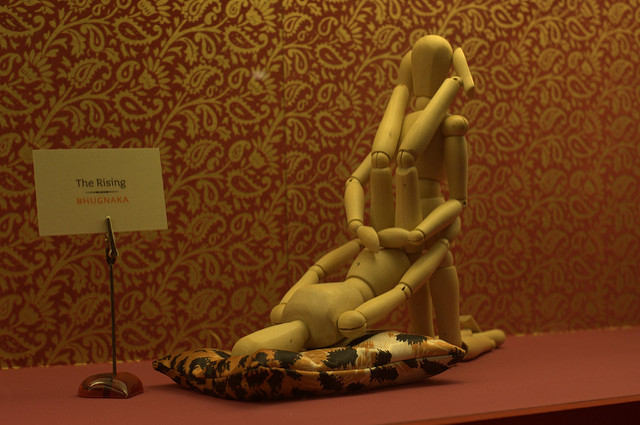
Around the time when I began exploring Tantra, I also started dating a scientist.
Initially, this seemed like a pretty big contradiction, but in hindsight my science-minded boyfriend actually helped me have a deeper appreciation of Tantra. With every practice I’ve wanted to bring into our relationship, I’ve also had to find a way to discuss and articulate my feelings with my partner—someone who didn’t accept spirituality as readily as I did.
At the beginning, this led to frustration for us. I struggled to articulate my deep and messy feelings, wishing he’d “just accept” certain claims of the practices. He questioned my beliefs and felt like my responses weren’t good enough answers. The shift that occurs through eye-gazing, for example, is hard to put into words. Actually, trying to do so can diminish the experience itself.
That said, when I see claims made “in the name of Tantra” that are gimmicky or trying to make a quick sale (rather than an honest presentation based on ancient techniques) my peace-loving, open-minded self gets put firmly on the shelf and my analytical self steps up to start questioning.
For example, the claims that Goop and Regina Hall recently made about the jade egg, presenting it in an entertaining and easily digestible (yet shallow and incorrect) way, merely fuels people’s arguments that tantric practices are for “crazy hippies.”
Other common false claims include statements like, “sperm from previous sex partners change a women’s DNA” and that “any future children she might have are dangerous.” These false claims highlight a knowledge gap in the tantric community. We must value critical thinking as much as the practices themselves.
Developing critical thinking ability is an important part of growing our consciousness, otherwise we’ll repeat the same habits we were taught as kids—to accept what we’re told. Especially if it’s something that we want to believe in.
So why isn’t it being discussed?
There is growing evidence from multiple, reliable sources about the benefits of meditation, which had previously been associated with a select few people who sit on the top of a hill, renounce all their possessions, and were not compatible with mainstream life.
And these findings are really exciting!
They give substance to the claims that living mindfully and having a regular meditation practice are beneficial to our lives, and therefore meditation has become accepted and utilized by people in all walks of life. This also brings more attention to other tantric practices. This makes having clear ways of preserving the integrity of the practices so important.
Here are four easy suggestions to ask when you encounter a spiritual claim:
>> What is the source of the information? Do they have a clear agenda which this claim supports (such as making a sale or pushing their beliefs)? Could you have a conversation about their information and would they be open to having a respectful discussion about their claim?
>> What is their argument to support this claim? Is there any support for their claim? Or is it just something that sounds like a nice analogy more than a fact?
>> If they refer to a scientific study, do they provide references? If so, was it peer reviewed?
>> If the article includes links to other sites—click them and assess these too. Do they lead to what they said they would, or do they lead to another article that makes the same claim but also lacks the evidence?
There are, of course, many strategies to thinking critically and, depending on who you are, you might want to take the level of questioning further than someone else. It’s important to verify claims that spiritual communities share because, at best, they distinguish the genuine ancient practices from the new age marketing gimmicks. At worst, they prevent dangerous claims from being perpetuated
Additionally, the more spiritual practices are backed up by science, the more they’ll be maintained and respected as they enter the mainstream. The less misuse of scientific literature, the more respect we will gain from other communities—including the scientific.
~
Author: Kate Harris
Image: Laurie Vain/Flickr
Editor: Danielle Beutell
Copy Editor: Nicole Cameron
Social Editor: Yoli Rammazina






Read 0 comments and reply